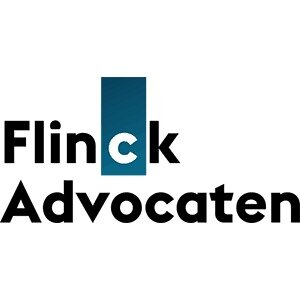Best Financial Services Regulation Lawyers in Netherlands
Share your needs with us, get contacted by law firms.
Free. Takes 2 min.
Or refine your search by selecting a city:
List of the best lawyers in Netherlands
About Financial Services Regulation Law in Netherlands
The financial services sector in the Netherlands is governed by an intricate framework of regulations designed to protect consumers and maintain the integrity of the financial system. Key legislation includes the Dutch Financial Supervision Act (Wet op het financieel toezicht, Wft), which consolidates various regulations and provides for the supervision of financial markets and institutions. The Dutch Central Bank (DNB) and the Authority for the Financial Markets (AFM) are two main entities that oversee compliance with these regulations. Their activities ensure transparency, stability, and consumer protection within the financial sector.
Why You May Need a Lawyer
Individuals and businesses may require legal assistance in financial services regulation for numerous reasons. Common situations include:
- Ensuring compliance with financial legislation.
- Navigating complex licensing procedures for financial institutions.
- Resolving disputes with financial service providers.
- Dealing with investigations or enforcement actions by regulatory bodies.
- Understanding the implications of cross-border financial transactions.
- Interpreting the impact of regulatory changes on business operations.
Local Laws Overview
In the Netherlands, the key aspects of local laws relevant to financial services regulation include:
- Licensing Requirements: Financial institutions must obtain a license from the DNB or AFM to operate. The licensing process is rigorous and requires detailed reporting.
- Conduct of Business Rules: Financial service providers must adhere to strict codes of conduct, ensuring they act in the best interests of their clients.
- Capital Adequacy and Risk Management: Institutions are required to maintain adequate capital reserves and have effective risk management practices.
- Consumer Protection: Regulations ensure transparency and fairness in the treatment of consumers, including procedures for complaint resolution.
- Anti-Money Laundering (AML) Compliance: Financial institutions must implement measures to prevent money laundering and terrorist financing.
Frequently Asked Questions
What is the role of the Dutch Central Bank in financial services regulation?
The Dutch Central Bank (DNB) oversees the stability of financial institutions, ensuring they adhere to capital adequacy and risk management standards.
How does the Authority for the Financial Markets protect consumers?
The AFM focuses on ensuring transparent and fair financial markets, thereby protecting consumers by regulating the conduct of financial institutions and advisors.
What types of licenses are required to operate a financial service in the Netherlands?
Businesses may require various licenses, such as banking licenses, insurance licenses, or investment firm licenses, depending on their nature of operations.
How can I ensure my business complies with anti-money laundering laws?
Implement a robust compliance program, conduct regular staff training, and monitor transactions to detect and report suspicious activity.
What should I do if I suspect a financial institution is violating regulations?
Report your concerns to the AFM or DNB, both of which have procedures for investigating breaches of financial laws.
Are there specific regulations for online financial services and fintech companies?
Yes, the Dutch regulations apply equally to offline and online services, and fintech companies must comply with financial supervision laws.
How is dispute resolution handled between consumers and financial institutions?
Disputes can be resolved through the Financial Services Complaints Tribunal (Kifid) or through legal proceedings in court.
What penalties can be imposed for non-compliance with financial regulations?
Penalties can include fines, license revocations, or criminal sanctions, depending on the severity of the non-compliance.
How are cross-border transactions regulated?
The Netherlands follows EU directives on cross-border transactions, including adherence to European financial supervision and regulatory standards.
What resources are available for understanding recent regulatory changes?
You can access updates from the DNB, AFM, or through professional legal services that offer analytical reports on regulatory changes.
Additional Resources
- Dutch Central Bank (DNB): Offers guidance on regulatory compliance and financial stability.
- Authority for the Financial Markets (AFM): Provides resources on market conduct and consumer protection.
- Financial Services Complaints Tribunal (Kifid): Helps consumers resolve disputes with financial service providers.
- Ministry of Finance: Provides overarching policies and regulatory frameworks for financial services.
- Legal and Consulting Firms: Provide tailored advice and assistance with regulatory compliance and litigation.
Next Steps
If you need legal assistance in financial services regulation, consider the following steps:
- Assess whether your issue involves compliance, licensing, or disputes.
- Gather all relevant documentation related to your situation.
- Consult with a legal professional specializing in financial services regulation to understand your options.
- Contact regulatory bodies like the DNB or AFM for guidance on regulatory requirements.
- Consider alternative dispute resolution methods if involved in a dispute with a financial institution.
- Stay informed about changes in regulations that may affect your service or business.
Lawzana helps you find the best lawyers and law firms in Netherlands through a curated and pre-screened list of qualified legal professionals. Our platform offers rankings and detailed profiles of attorneys and law firms, allowing you to compare based on practice areas, including Financial Services Regulation, experience, and client feedback.
Each profile includes a description of the firm's areas of practice, client reviews, team members and partners, year of establishment, spoken languages, office locations, contact information, social media presence, and any published articles or resources. Most firms on our platform speak English and are experienced in both local and international legal matters.
Get a quote from top-rated law firms in Netherlands — quickly, securely, and without unnecessary hassle.
Disclaimer:
The information provided on this page is for general informational purposes only and does not constitute legal advice. While we strive to ensure the accuracy and relevance of the content, legal information may change over time, and interpretations of the law can vary. You should always consult with a qualified legal professional for advice specific to your situation.
We disclaim all liability for actions taken or not taken based on the content of this page. If you believe any information is incorrect or outdated, please contact us, and we will review and update it where appropriate.
Browse financial services regulation law firms by city in Netherlands
Refine your search by selecting a city.
















